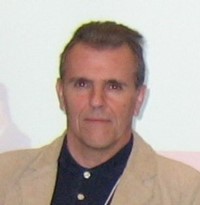The Complexity Based Project Management
Framework
FEATURED PAPER
Lavagnon Ika, PhD, Jean Couillard, PhD & Serge Garon, MSc
Canada
Abstract
This article is about considering key aspects of project complexity to increase the likelihood of success of your projects. Complexity can cause significant issues in project management and might even lead to project failure. According to recent surveys, two of the most critical aspects of project complexity were: structural complexity (the complexity of the deliverables and their means of implementation) and socio-political complexity (the complexity of the project setting notably the effects of many diverse stakeholders). Based on complexity and systems thinking and illustrative case studies, the article proposes a user-friendly framework, which maps these two important project complexity aspects into a project complexity context. The framework highlights five different types of project complexity contexts: structured, complicated, complex, “complexicated” (that is both complicated and complex) and chaotic. It finally calls for attention on key areas that could be critical for project management in the five project complexity contexts. It is suggested that project managers focus on the project plan in structured contexts, on design and expertise in complicated contexts, on stakeholders in complex contexts, on communication between stakeholders and experts in complexicated contexts, and on rapid response and high adaptability in chaotic contexts.
Key words: Project Complexity, Structural Complexity, Socio-political Complexity, Project Complexity Model, Complexity Context, Cynefin
Introduction
This article proposes a framework, the Complexity Based Project Management Framework (CBPMF), to assist managers in (1) assessing the complexity context of their projects and (2) in identifying, for each of the complexity context, key areas to consider to increase the likelihood of project success. Evidence from complexity and systems thinking suggests that ignoring the role of complexity in project management can cause significant issues for many projects, such as the Big Dig (Shenhar & Dvir, 2007; Bentahar & Ika, 2019). Finding ways to understand and cope effectively with complexity remains an important challenge for many project managers (Maylor & Turner, 2017). This article may help as it presents a framework to deal with project complexity.
Impacts of mis-understood complexity
Take, for example, the Big Dig highway project in Boston, Massachusetts, one of the largest and expensive infrastructure projects in US history. Over the 15 years of construction, and notwithstanding the use of best practices and innovative tools to mitigate risk and control cost, the project went from a budget of $2.6 billion to a final cost of more than $15 billion. As the risk manager of the project notes, “If there is a single cause for the massive cost escalation on the Big Dig, it probably involves the management of the project’s complex integration” (Greiman, 2010).
The Big Dig highway, a 12-km (7.5 mile)-long corridor in one of the oldest and busiest cities in the country, involved replacing the elevated highway I-93 with an eight-to-ten-lane expressway, erecting a ten-lane cable-stayed bridge across a river, extending the highway I-90 to Logan Airport through a harbor tunnel, and building four major highway interchanges. This project incurred a significant cost blowout. In addition to the above-described structural complexity, that is the intrinsic complexity of the project itself, its socio-political complexity or the complexity of the project setting including its stakeholders (Geraldi, Maylor, & Williams, 2011) was deemed a major contributing factor in its cost blowout. “This was less the result of corruption than of underestimating various interest groups’ bargaining power. Police required substantial overtime payments, affected neighborhoods demanded soundproofing and side payments, and there was pressure to create jobs leading to overstaffing” (Rogoff, 2020).
Some applicable standards and frameworks
Standardized project management approaches such as the Project Management Body of Knowledge from the Project Management Institute (PMI), the International Competency Baseline from the Europe-based International Project Management Association (IPMA), and PRINCE II from the UK Office of Government Commerce, can help managers in increasing the likelihood of success of their projects (Milosevic & Patanakul, 2005; Joslin & Müller, 2015). These best practices being grounded in the Newtonian scientific management, it is assumed that a certain level of predictability and order exists in all projects. While these best practices work well in some circumstances, they do not always offer effective ways to manage complexity (Snowden and Boone, 2007; Stacey, 1996). Hence, it was found that structural complexity and socio-political complexity caused significant issues to practitioners and thus should be considered as important aspects of project complexity to be managed (Maylor & Turner, 2017).
More…
To read entire paper, click here
How to cite this paper: Ika, L., Coullard, J., Garon, S. (2021). Coping with Project Complexity: The Complexity Based Project Management Framework; PM World Journal, Vol. X, Issue V, May. Available online at https://pmworldlibrary.net/wp-content/uploads/2021/05/pmwj105-May2021-Ika-Couillard-Garon-coping-with-project-complexity.pdf
About the Authors

Lavagnon Ika, PhD
Ontario, Canada
![]()
Lavagnon Ika, MSc, PhD is Professor of Project Management and Founding Director of the Observatory of Major Projects at the Telfer School of Management at the University of Ottawa. For the past 20 years, he has taught project management around the world. He is an Associate Editor of the International Journal of Project Management, a member of the Academic Boards of the international project management associations PMI and IPMA, and a World Bank research fellow. Professor Ika’s research has been published in prestigious journals such as World Development, IEEE Transactions on Engineering Management, Production Planning and Control, Transportation Research Part A: Policy and Practice, International Journal of Project Management, Project Management Journal and Harvard Business Review France. His work has earned him three Emerald Publishing House Awards of Excellence (Best Reviewer Award in 2018, Outstanding Paper in 2017 and Highly Commended Paper Award in 2011), as well as two IPMA Awards of Excellence (Research Award in 2017 and Contribution of a Young Researcher Award in 2012). He was awarded the Telfer Innovative Researcher Award in 2017. Several of his articles have received praise from practitioners. Prof Ika can be contacted at ika@telfer.uottawa.ca

Jean Couillard, PhD
Ontario, Canada
![]()
Dr Jean Couillard was a professor at the Telfer School of Management at the University of Ottawa from 1983 until 2016. He has taught project management in many Canadian universities and in many Canadian Federal Agencies and Departments including the Department of National Defence (DND). He undertook research for DND and the Canadian Space Agency to identify the best project management practices. Dr Couillard’s research has been published in many journals including IEEE Transactions on Engineering Management, the Project Management Journal, Decision Support Systems – the International Journal, Production and Operations Management – an International Journal of the Production and Management Society, Revue Internationale en Gestion et en Management de Projets, and Gestion 2000, Management & Prospective. Dr Couillard is also a project management consultant since 1979. Many Canadian Departments and organizations have had the opportunity to receive Dr. Couillard as a project management consultant including Public Services and Procurement Canada, DND, the Royal Canadian Mountain Police, the Canadian Nuclear safety Commission, Justice Canada, Industry Canada, Canada Post, Statistics Canada, and Interis Consulting Inc. He can be contacted at Couillard@telfer.uottawa.ca

Serge Garon
Québec, Canada
![]()
Serge Garon, CD, EurIng, P.Eng, MSc, PMP, CMII is retired Executive Director at the Canadian Space Agency (CSA) and retired Naval Engineering Officer (Royal Canadian Navy), Serge is now a Teaching-Professor of Project and Disaster Management at the University of Quebec in Montreal, a senior instructor for the PMI Chapter of Montreal, and a project risk management consultant. He has been national and international speaker at conferences such as the PMI Risk SIG in Houston, the IEEE Ottawa Section, the International Aerospace Congress (IAC) in various countries, the Quebec Professional Engineers Association, the PMI-Montreal Annual Symposium and other venues. He has published in the Journal of Project Management (PMI), the Journal of Knowledge Management (Emerald Publishing), and the Canadian Forces Marine Engineering Journal, amongst others.
Serge is also a very experienced project manager. His CSA experience includes that of Director of the Canadian contribution to the James Web Space Telescope project, Director of the Cassiope and the Neosat space projects, Director of the EPMO and Program Assurance at the CSA, Senior Risk Manager for the Canadarm-2 project for the International Space Station, and management of the CSA Emergency Shelter Project during the 1998 Ice Storm. As a Marine Engineer and Naval Architect, he held the functions of Senior Naval Architect for Naval Construction projects and sea trials, following previous experience as Shipboard Chief-Engineer, damage control specialist and Marine Engineering Instructor.
Serge is a graduate of the MIT (Graduate certificates in shipyard management and ship protection), the University College London (MSc in Naval Architecture and Post-Grad Certificate in Submarine design), the Canadian Navy (Naval Architecture, Shipboard Chief Engineering, and Damage Control Specialty), and Laval University (Chemical engineering). He has been recognized for his engineering, project management and humanitarian contributions through awards such as the TM Pallas Award (from the CIMare), the CDS Commendation (Canadian Forces), and the Paul Harris Award (Rotary Club). Most especially, Serge enjoys sharing about Project Management. Garon.serge@uqam.ca









